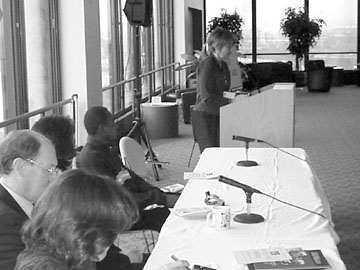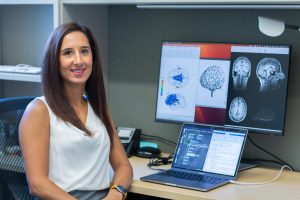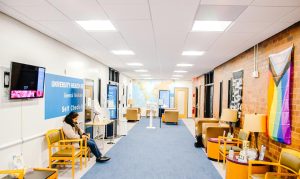Mentoring Works, Say Professionals

April 15, 2003
UMass Boston students, faculty, and community partners gathered for a second time to discuss the practice of mentoring.
Panelists came from a wide array of organizations, which included Big Brothers of Mass Bay, Mass Mentoring Partnership, UMass Boston’s Psychology Department, and student mentors.
Jain Ruvidich-Higgins, of the Office of Service Learning & Community Outreach, kicked off the forum by stating her organization acted as a “clearinghouse,” or “matchmaker” between UMB and students. When the mentoring program first started, she said, there was no preparation and no follow up, leaving it in a “position to do more harm than good.”
From UMB’s own Psychology Department was Dr. Jean Rhodes, who said mentoring was now in the limelight, pointing out that President George W. Bush recently approved $450 million for mentoring programs. Around fifteen percent of mentoring programs are more than ten years old, she said, and many are even older, like Big Brother, Big Sister. She also noted a thirty-year study which found that all students who were deemed “invulnerable without exception” to negative influences had mentors. “One good relationship makes the difference,” she said. Many factors go into a good mentoring relationship, she continued, stating that there need to be things like regular supervision and parental involvement.
John Pearson, President and CEO of Big Brothers of Massachusetts Bay, praised Dr. Rhodes for her work, and said he was “very open to learn where we fail… [it’s] very important to learn how to get better.” As the nation’s largest volunteer mentoring organization, Big Brothers of Mass Bay has a four million dollar budget and full support staff.
Pearson first got involved at Walpole State Prison, where he mentored an older man who had not been out of jail for more than six months at a time.
Linda Alioto-Robinson, an executive director of the Massachusetts Mentoring Partnership, an advocate and resource center, pointed out how mentoring exploded in the late 1980’s and early 90’s, invigorating work at the local and national level.
Before her twelve years at Mass Mentoring, Robinson had previously been an administrator at a local high school that had a high dropout rate. Before all the research on mentoring came out, she said, she instituted a mentoring program with 8th graders who were “already pegged as never graduating.” Ninety percent ended up graduating, she said.
The small audience at the Ryan Lounge also got to hear from some mentors and mentees.
Kofi Takgi, a College of Management graduate student, spoke of his experiences as a mentor. He has had to cut back recently because of schoolwork, he says, and isn’t sure if the children miss him, but he misses them. The difficult part was getting them to study, he said, since children think differently than adults, and want to play games a lot of the time.
Gulet Shirdon, a native of Somalia and currently an African Studies student, first got involved in mentoring programs in Kenya and Somalia. When he came to the United States, his first goal was to learn the language. He and his brother were soon assigned to an elderly woman to learn English. When he enrolled in high school, he kept going to mentoring programs, because, “It was important for us to learn the language of this strange land,” he said. He has now turned to the role of mentor in a workshop with middle school students.
“It doesn’t matter how long you work,” he said, “If one day you contribute to their lives, it does make a difference.”
The event was sponsored by the Alcohol and Addiction Resource Center, the Black Student Center, the Office of Service Learning and Community Outreach, the Pew Charitable Trust, and others.











































































